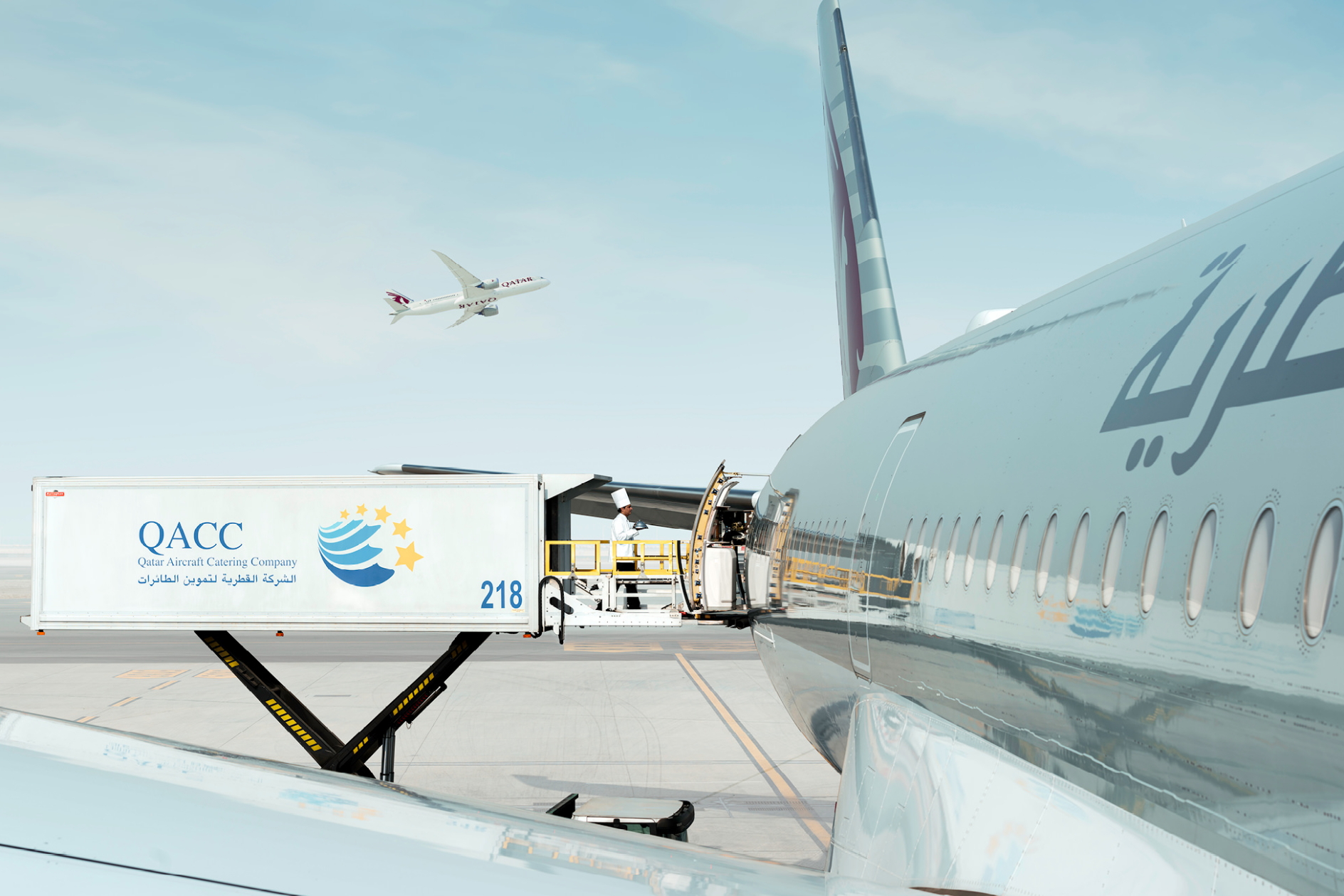|
(22 Feb 2022)
Qatar Aircraft Catering Company (QACC) says it
has achieved its one-year environmental sustainability target by
recycling more
than one million kilograms of plastic waste and donating more
than 100,000 pieces of goods and surplus food supplies to people
in need across the globe.
QACC reduced its annual waste volume by nearly
1,688 tonnes per year by implementing recycling programmes for
waste such as cardboard, chemical drums, plastic water bottles and
used wastepaper, which are sent for reprocessing into goods that
are sold locally and exported internationally.

QACC recycled more than 1 million kilograms of plastic waste within a year.
The company also
partnered with Qatar Charity and Hifz Al Naema, Qatar-based non-profit organisations, to distribute more than three tonnes of donated
goods, including more than 40,000 linen items such as cotton
blankets, mattresses, feather duvets, as well as 3.14 tonnes worth
of food condiments.
Mr. Sascha
Wolfersdorf, QACC Acting Senior Vice President, said, �QACC serves more than 100,000 meals every day
to passengers flying out of Doha, and we know that this has a
significant impact on consumption levels. It is not enough to
recycle one product, we are looking to make a meaningful
sustainable impact and as a result, we made it our responsibility
to seek out innovative ways to recycle goods and to reduce waste.
Through creative thinking and usage of new technology, QACC have
exceed its annual recycling target and recycled more than one
million kilograms of plastic waste in one year. We will not rest
on our laurels, the catering subsidiary will continue its search
for more environmental sustainable solutions, for a greener
future.�
QACC has developed
strong relationships with local suppliers of fruits and vegetables
to reduce the volume of imported goods, as well as decreasing the
airline�s equipment and linen loading weight by nearly 257 tonnes,
which contributed to a reduction in aircraft fuel consumption and
CO2 emissions.
The company is also planning a greenhouse
farming project to achieve self-sufficiency in micro-herbs and
green vegetation.
See also:
Hotel Waste, Single-Use Plastic and Climate Change - HD Video
Interview with WWF.
|
Headlines: |
|
|

